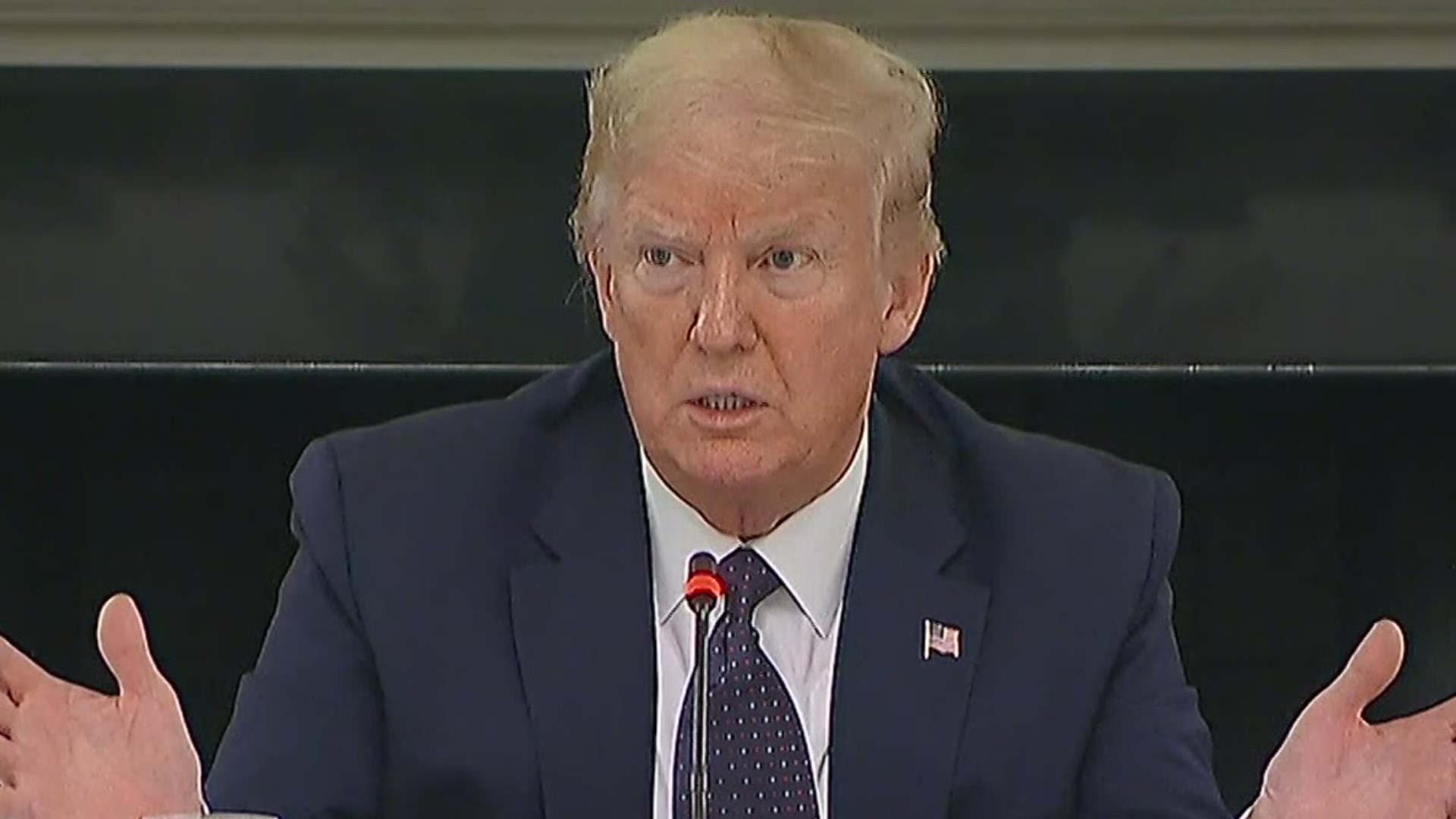TAMPA, Fla. — The White House defended President Donald Trump's use of hydroxychloroquine as a preventative against COVID-19 coronavirus by pointing to studies, including one at Tampa General Hospital, trying to prove that very point.
Reports in recent weeks have shown the malaria drug is unproven to prevent or treat the virus and, in some cases, lead to serious side effects. In other cases, it can be lethal.
The U.S. Food and Drug Administration has warned against its use except in formal studies.
"You'd be surprised at about how many people are taking it, especially the front line workers before you catch it," Trump said on Monday before announcing, "I happen to be taking it. ... I'm taking it, hydroxychloroquine, right now, yeah."
NBC News reporter Kristen Welker during a news conference on Wednesday asked White House Press Secretary Kayleigh McEnany why Trump said "thousands" of front line workers are using it when the American Nurses Associated released the following statement saying otherwise:
"The American Nurses Association has not received reports from nurses or other frontline healthcare workers utilizing Hydroxychloroquine as a preventative treatment for COVID-19."
McEnany said 3,000 front line workers at Henry Ford Hospital in Michigan will be taking hydroxychloroquine "to look at its use as a prophylaxis," and there are "190 workers" at Tampa General Hosptial doing the same.
The study at Tampa General Hospital, as McEnany cited, is not the same as taking the drug for its potential benefits -- that is the very thing researchers are trying to figure out right now.
"Hydroxychloroquine has anti-virus properties. And that is the real question: is this anti-viral property going to protect us from getting COVID-19?" said Dr. Seetha Lakshmi, an assistant professor of infectious disease at USF Health and associate hospital epidemiologist at Tampa General Hospital, in an earlier interview.
She is leading the eight-to-12-week study involving 375 health care workers from USF and Tampa General Hospital. Half will be given hydroxychloroquine while the other half is given a placebo.
"And we follow them and see who got more COVID-19. Is it the ones who are getting hydroxychloroquine, or the ones who are getting placebo," Lakshmi said.
McEnany pointed to other studies, including an earlier one whose results were published in the "International Journal of Antimicrobial Agents," that did find the combination of hydroxychloroquine and the antibiotic azithromycin might have been effective with a small number of people.
(Scrub to about 9:35 to listen to the question to the White House press secretary and her full comments.)
Still, the FDA said the drug should not be used by every day Americans unless within a hospital or research setting as some side effects have ranged from serious heart-rhythm problems to death.
"If you're someone out there and this is a safe drug to use and your doctor -- importantly to underscore that -- and your doctor prescribes it for your use as a prophylaxis or after coming into contact with COVID then it's something you should take if it's prescribed by the doctor and that's your personal medical choice," McEnany said.
What other people are reading right now:
- Vice President Mike Pence to deliver masks to Florida nursing home
- Woman who designed Florida's coronavirus dashboard gets removed from project; leaders demand answers
- At least 70 people charged in Polk County drug investigation
- Michigan city could see 9 feet of water after 2 dams fail
- Hospital that's been closed for almost a year get $121K in COVID-19 relief money
FREE 10NEWS APP:
►Stay In the Know! Sign up now for the Brightside Blend Newsletter



